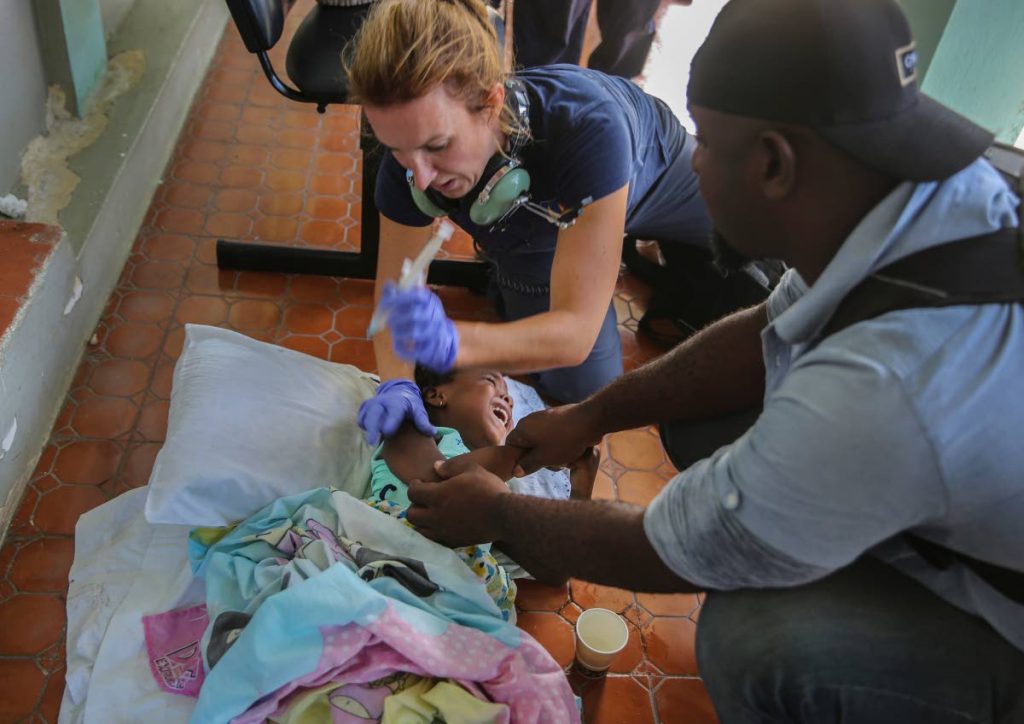More aftershocks for Haiti

HARDLY had the dust settled on the news that Haiti had been rocked by a 7.2 magnitude earthquake on Saturday than word came that more woe was heading that country’s way, in the form of Tropical Depression Grace.
Figures from Haiti's Civil Protection Agency on Monday said the quake left 1,419 people dead and 6,000 injured. Earlier reports put the number of homes destroyed at more than 13,000. Many people are still trapped in the rubble and lack food and drinking water.
The storm, which formed just as the earthquake struck, was initially forecast to spare the parts of Haiti most seriously affected by the earthquake. However, it abruptly changed course, complicating rescue efforts and bringing further misery for Haitians still besieged with fear in the wake of the July 7 assassination of President Jovenel Moise.
That destabilising event is still an unfolding saga. Police have arrested 44 people, including 12 Haitian police officers, 18 Colombians and two Americans of Haitian descent.
But the official named to head the investigation into M Moise’s killing, Judge Mathieu Chanlatte, announced on Friday he was stepping down from the case for “personal reasons.” He had been named to head the probe only days earlier, a full five weeks after the assassination.
There is widespread belief that M Chanlatte’s swift exit stemmed from the death of his chief clerk, Ernst Lafortune, who was found dead on Thursday in suspicious circumstances.
It is not clear who will now lead the probe, in a country in which armed gangs are suspected of operating in close proximity to key law-enforcement premises, including the Port-au-Prince Court of First Instance. Some have linked M Chanlatte’s departure to a disagreement over security.
In addition to efforts by Caricom to activate regional disaster-response mechanisms and co-ordinate humanitarian aid, this country should join with calls for an independent investigation into M Moise’s assassination, possibly under the aegis of the United Nations. Such an investigation is key if the country is to return to political stability.
All of these developments come as Haiti continues to grapple with the covid19 pandemic as well as the long-term effects of the 2010 earthquake that left roughly 250,000 people dead and displaced 1.5 million Haitians.
The plight of the country today is all the more tragic, given how much the world owes it. In 1791, the people of Haiti, then known as S. Domingue, staged the first and only successful slave revolt in modern history, an event that had global reverberations.
Yet, while so many now enjoy freedoms for which Haitians helped pave the way, the wave of tragedies that has befallen Haiti underline how as a country it is yet to be free.


Comments
"More aftershocks for Haiti"